JSON - Faker & Mockup

I recently worked on an ETL project in Python. Among other things, the script had to process JSON files that users dropped into a specific folder.
As this was a sensitive application, it was important to validate the script by submitting fake JSON files, but also to ensure the quality of the files received.
For the fake files, I used a tool like the Faker library for Python.
Generate faker JSON file
So the idea is to generate a dictionary (a json file) with fake data. Using the Faker library, it's really, really easy.
First install the library using pip install faker.
And below a small Python script to generate fake data in French (just replace range(1) by f.i. range(100) to get 100 records):
import json
from faker import Faker
fake = Faker()
fake = Faker('fr_FR')
data = []
for _ in range(1):
user = {
'firstname': fake.first_name(),
'lastname': fake.last_name(),
'address': fake.street_address(),
'city': fake.city(),
'country': fake.country(),
'gender': fake.random_element(elements=('Homme', 'Femme', 'Non binaire'))
}
data.append(user)
# Pretty print the JSON data
print(json.dumps(data, indent=4, ensure_ascii=False))
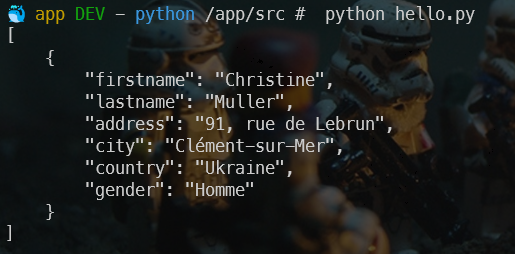
Continue your reading with the official Faker documentation: https://faker.readthedocs.io/en/master/
Using Mockaroo.com
The https://www.mockaroo.com/ website allows you to create, for free (to access certain functions, you will need to create a free account).
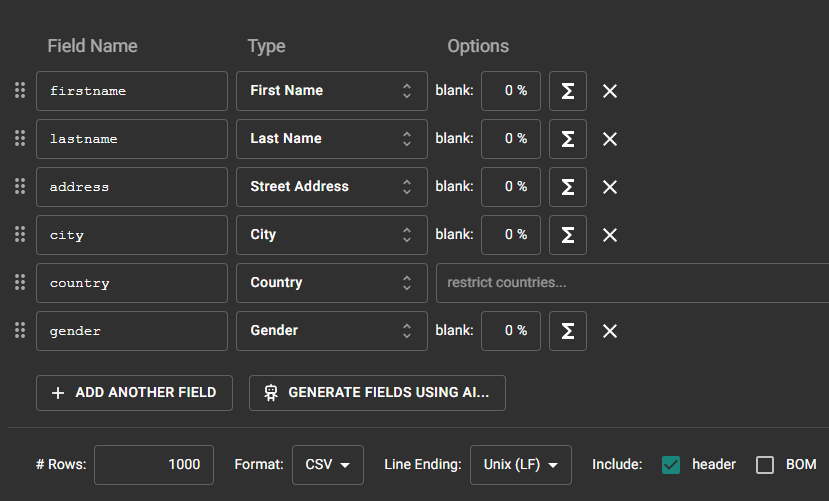
Creating a fake data using a schema
By creating a free account on Mockaroo, click on the Schemas button, then select Create a schema. In the next screen, click on Generate fields using AI... and paste a JSON existing string:
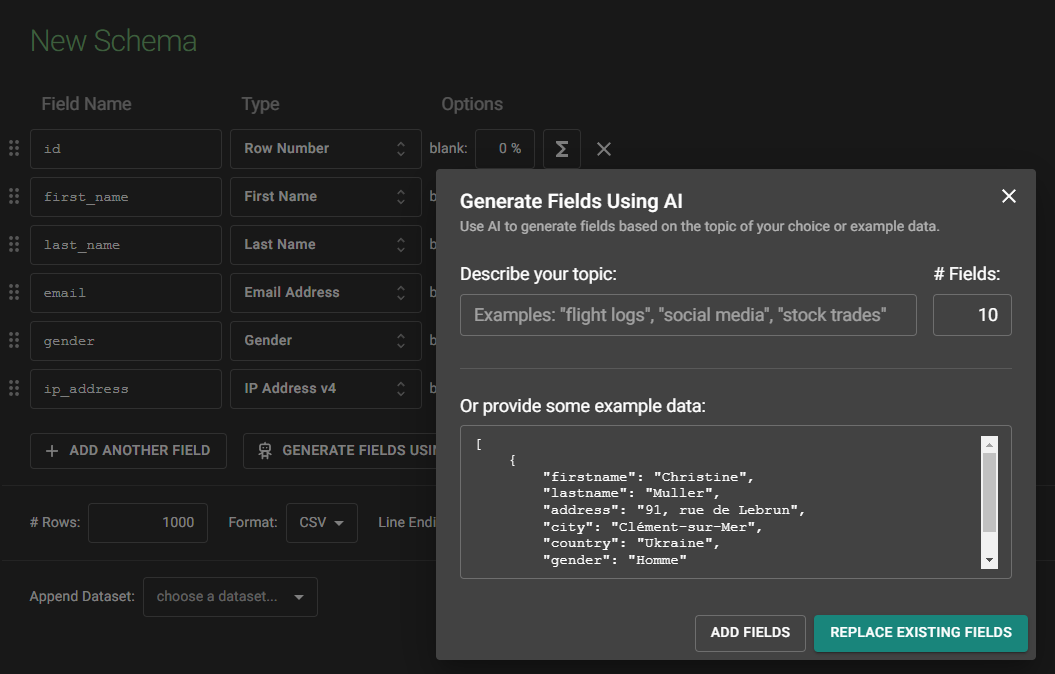
This done, you'll be able to generate a big number of rows like f.i. creating a file with more than 1,000 records.
By saving examples to a real JSON file on disk, you can then use that file to test your application.
Using API
By creating a free account on Mockaroo, you can obtain a free API key (allowing 200 requests/day).
The API documentation is here: https://mockaroo.com/docs.
Like previously, click on the Schemas button, create a schema and save it.
I've created the schema_test like this:
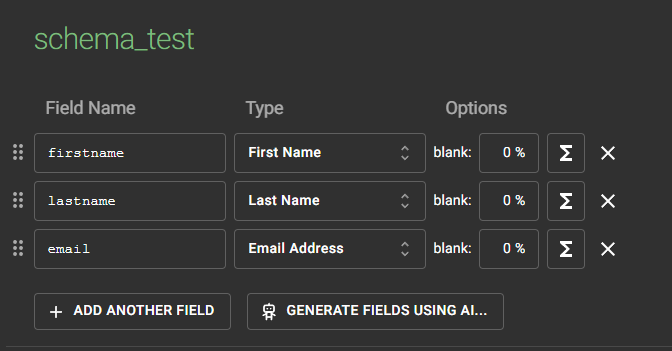
I can then use it in Python like this:
import requests
# My API key as displayed in my profile page on Mockaroo
api_key = "MY_API_KEY"
# This is the name of my schema
schema = "schema_test"
# Number of records I want
num_records = 10
# Construct the API endpoint URL
url = f"https://api.mockaroo.com/api/generate?key={api_key}&count={num_records}&schema={schema}"
# Make the API request
response = requests.get(url)
# Check if the request was successful
if response.status_code == 200:
# Parse the JSON response
data = response.json()
# Display the result on the console
print(data)
else:
print(f"Error fetching data: {response.text}")
To make this code working, think to install the requests library: pip install requests.
By calling my script twice; each time I got a different set of data:
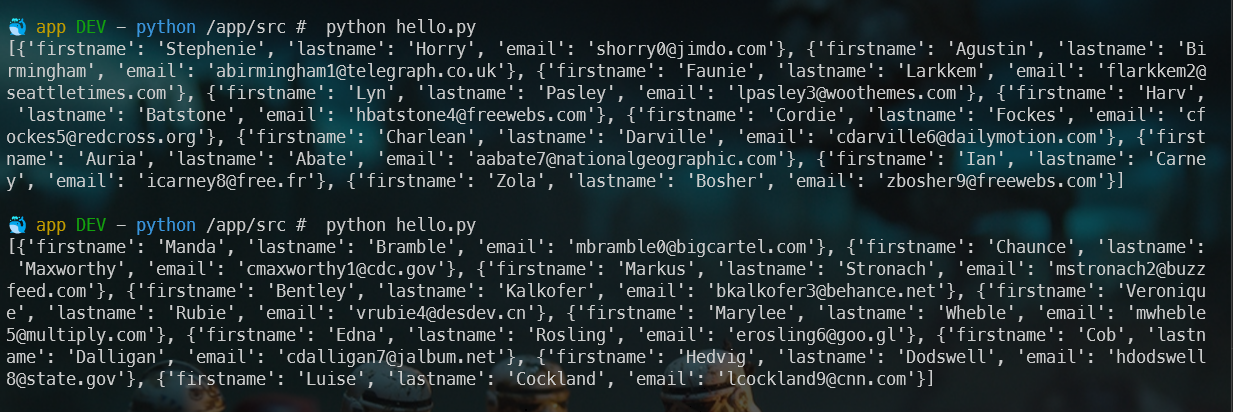
Online JSON to Schema Converter
The https://www.liquid-technologies.com/online-json-to-schema-converter site will allow you to copy/paste existing JSON and get a skeleton of a JSON schema.
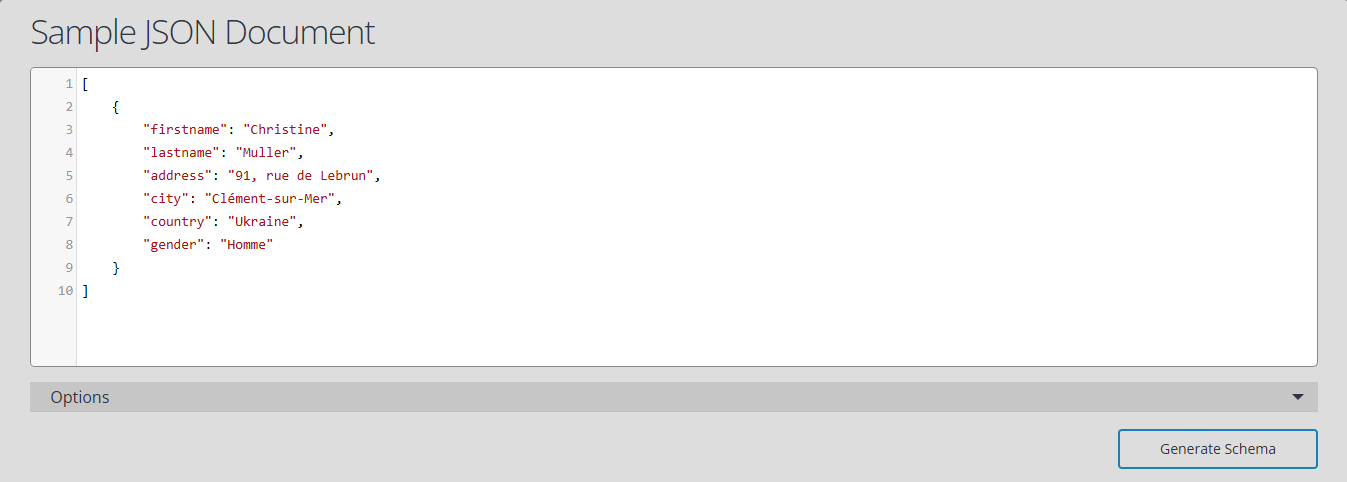
Once you've the schema, you can use it in Python like this:
import json
import jsonschema
def validate_json(data_file, schema_file):
with open(schema_file) as f:
schema = json.load(f)
with open(data_file) as f:
data = json.load(f)
jsonschema.validate(instance=data, schema=schema)
data_file = "data.json"
schema_file = "schema.json"
try:
validate_json(data_file, schema_file)
print("Data is valid!")
except jsonschema.exceptions.ValidationError as exception:
print(f{"Data is invalid: {exception}")
You'll need to run pip install jsonschema first.
Now, I'll test my file. The first time, my JSON file will be correct. I've then removed the city record in my JSON and rerunning the script will indeed fails as expected:
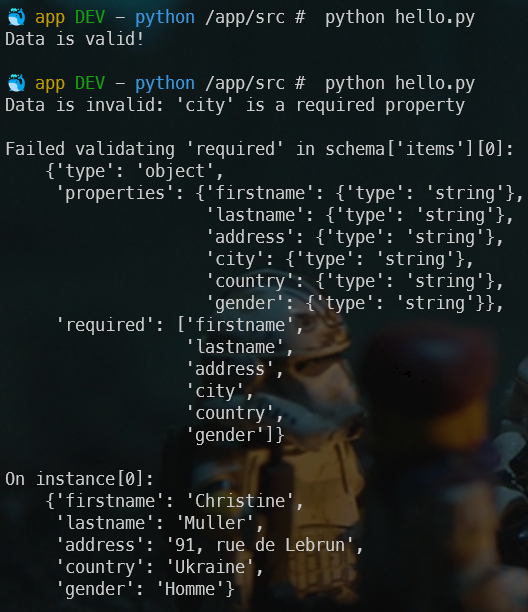
As we can see, quite quickly, we've generated 1,000 records and, too, a validation schema. Then using few lines in Python, we've ensure the file is correct or, if not, we've spotted where the error is located.